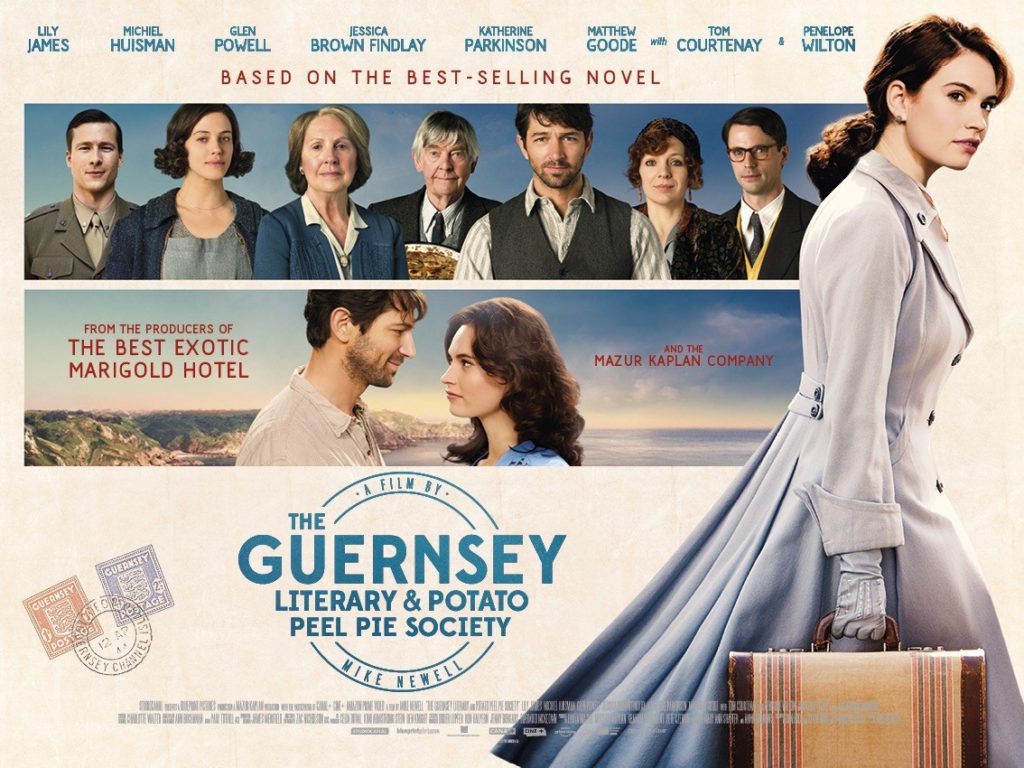Regular contributor Eve Jones reviews The Guernsey Literary & Potato Peel Pie Society, showing in the PAC cinema until Thursday 31 May. Tickets to the remaining screenings are available here.
Based on the best-selling novel of the same name, Mike Newell (Four Weddings and A Funeral, Mona Lisa Smile) offers cosy romantic drama in The Guernsey Literary and Potato Peel Pie Society.
Juliet Ashton (Lily James) is a young, established author, but not under her own name. In a post-WWII London, she receives a letter from a stranger looking for answers and in exchange she learns of a community brought together by books in the bitterness of Guernsey’s German occupation. Intrigued, she invites herself to the island to learn more about this unusual society.
Upon her arrival, Juliet meets the misfit members of the book group and discovers the powerful community they have built for one another. This chorus, each with their own quirks and foibles are written with great wit by Don Roos and Thomas Bezucha. Amongst them are the eccentric gin-brewing Isola (Katherine Parkinson), the slow but compassionate post-master Eben (Tom Courtenay) and the stubborn mother-hen Amelia (Penelope Wilton).
Juliet’s pen pal, the stereotypically rugged but tender Dawsey Adams (Michiel Huisman) is foiled by the growing condescension of her teeth-grindingly smug American love interest, Mark (Glen Powell). The film explores our relationship with the ‘other’; how in light of war, one woman sees humanity transcend political labels, yet another man fails to understand even the limitations of wealth.
Juliet befriends and determinedly questions each character regarding the society’s elusive founder Elizabeth (Jessica Brown Findlay). What she uncovers, relayed through flashbacks, increasingly becomes her most compelling story to date, but Juliet is forced to question the morality of writing about other peoples’ lives.
Filmed in South West England, the movie is largely set on the idyllic island of Guernsey. Juliet flits along coastal paths, between quaint stone cottages and up cobbled streets on her quest to uncover the real costs of the German occupation for this channel island coterie. The stunning yet somewhat bleak landscape shots, respectively act as respite to and a solemn reflection of the darker narrative points.
Newell’s story-telling plays on familiar romantic tropes. These predictable, fairy-tale moments will warm some cockles and burn others with their gratuity. However, the film does stand alone in it’s refreshing portrayal of the lasting effects of war. The themes of community and loss, the romanticism of landscapes and relationships alike, presented through a drip-fed, genuinely mysterious narrative, come together to produce a film well worth watching.
Eve Jones









Comments
Comments are closed.